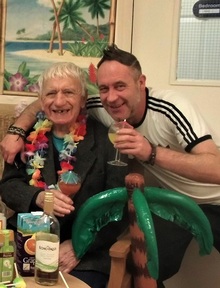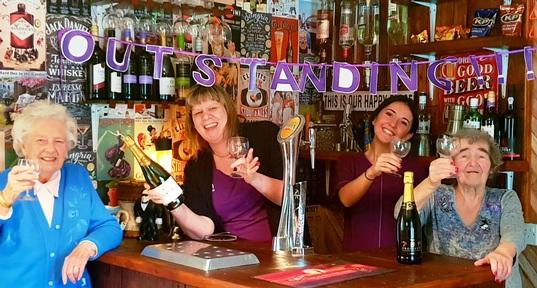Sea Hero Quest: The smartphone game helping to fight dementia
Sea Hero Quest is the mobile phone game that allows its users to help contribute to dementia research each time it is played, and has become the biggest dementia study in history.
Since the game launched in May, more than 2.4m people have taken part in playing the game, generating more than 63 years worth of gameplay. This equates to 9,400 years worth of equivalent lab-based research into human spatial navigation.
![]() Sea Hero Quest
Sea Hero Quest
The game was developed alongside Alzheimer’s Research UK and a team of scientists from University College London (UCL), as well as experts in gaming, technology, academia and research to help create the biggest spatial navigation study in history.
The initial findings showing that a person’s spatial navigation abilities begin to decline from early adulthood, were revealed at a presentation at the Neuroscience 2016 conference in San Diego, and are the first to be released as part of Deutsche Telekom’s Sea Hero Quest Project.
It is hoped that the research will set new standards in dementia research and establish the first ever global benchmark for human spatial navigation which is considered to be a key indicator in the development and diagnosis of dementia.
Chief executive of Alzheimer’s Research UK, Hilary Evans, said: “Problems with spatial navigation can often be an early warning sign of dementia and sadly we hear all too frequently of people getting lost and being found miles away from home. Researchers believe that these problems with spatial navigation could form the basis of a diagnostic test for the early stages of diseases like Alzheimer’s, which could add a valuable tool to a clinician’s diagnostic armoury.
"For any new diagnostic tool to be effective, it must take into account natural variation in a particular skill or ability across the population.
Promising results
“The strength of Deutsche Telekom’s Sea Hero Quest is that it has provided unprecedented amounts of data on spatial navigation across the world’s population, which is not only revealing key insights into human behaviour but has the potential to inform the development of future diagnostic tests.
“While Sea Hero Quest is targeted towards the general population, it’s promising to see the game already being taken into a clinical setting to measure spatial navigation changes in people with dementia.”
![]() Stills from Sea Hero Quest
Stills from Sea Hero Quest
Initial findings suggest that a person’s spatial navigation abilities begin to decline from early adulthood (sample analysis began at 19) and they continue to decline across a person’s lifespan. Players aged 19 were considered 74 per cent more likely to hit a target during the game, whereas the figure reduced to 46 per cent amongst people aged 75.
The progression was in stark contrast to the results of previous small scale studies of approximately 100 people, which revealed a decline could be expected in later life.
Memory is currently the gold standard for a dementia diagnosis, which naturally declines with ageing and therefore can make it difficult to determine if someone has dementia or naturally declining memory due to ageing, while spatial navigation is considered to be another problem affecting people in the early stages of dementia.
The team behind Sea Hero Quest set out to understand how a person’s spatial navigation abilities vary across the general population.
Leading the analysis of the anonymous player data, Dr Hugo Spiers of UCL said: “This is the only study of its kind, on this scale, to date. Its accuracy greatly exceeds that of all previous research in this area.
“The findings the game is yielding have enormous potential to support vital developments in dementia research. The ability to diagnose dementia at early stages, well before patients exhibit any signs of general memory loss, would be a milestone. This study is thus now giving us the opportunity to make a real difference to the lives of millions of people living with dementia and those at risk of developing the disease in the future.”
The spatial navigation benchmark established by Deutsche Telekom’s Sea Hero Quest is set to pave the way for early detection of spatial navigational changes in dementia, with hopes that in the long-term, the research could enable the diagnosis and treatment of patients earlier with both current and future pharmacological and non-pharmacological therapies.
Making a difference to the lives of people with dementia
When researchers analysed the ‘flare levels’ of both men and women playing the game, they noted that they had applied different spatial navigation strategies to complete each level.
Significant differences were found across the nations, with Nordic countries (Finland, Sweden, Norway and Denmark) appearing to have noticably different spatial navigation capabilities out of the 193 nations who contributed to the study sample.
Sea Hero Quest will now be used to help predict the onset of the dementia, as well help to influence and track the impact the treatment of those already diagnosed with the condition.
This will involve developing a new version of the game to allow for the identification of patients, on a device in a clinical setting. Patients will be tested and matched against the global populations, helping to account for variations in key demographics.
Introducing Sea Hero Quest to a clinical setting allows for the measurement of potential improvements in spatial navigational abilities and could potentially be used in drug trials to assess the effectiveness of different drug treatments.
Further analysis of the data is still ongoing and is expected to take two years to complete and will assess six other demographics that have been tracked by the game, including: education level, handedness, self-rated spatial navigation ability, the geographical environments in which players grew up, hours of sleep and amount of time spent travelling per day.
The game is available to download for free from the App Store and Google Play, with the data that is collected being shared with participating scientists and the dementia research community.
Latest Innovative Care News
 13-May-19
'Pink drink' brain cancer treatment rolled out across NHS in memory of Baroness Jowell
13-May-19
'Pink drink' brain cancer treatment rolled out across NHS in memory of Baroness Jowell
 25-Apr-19
Louis Tomlinson helps 83-year-old who lost wife to dementia complete bucket list
25-Apr-19
Louis Tomlinson helps 83-year-old who lost wife to dementia complete bucket list
 22-Mar-19
UK's top care home handyman takes residents to pub for pie and pint
22-Mar-19
UK's top care home handyman takes residents to pub for pie and pint
 12-Feb-19
Michael McIntyre's jokes tested to see if they stop elderly catching flu
12-Feb-19
Michael McIntyre's jokes tested to see if they stop elderly catching flu
 07-Jan-19
'We were lucky to find it': Family's delight as care home is rated Outstanding
07-Jan-19
'We were lucky to find it': Family's delight as care home is rated Outstanding